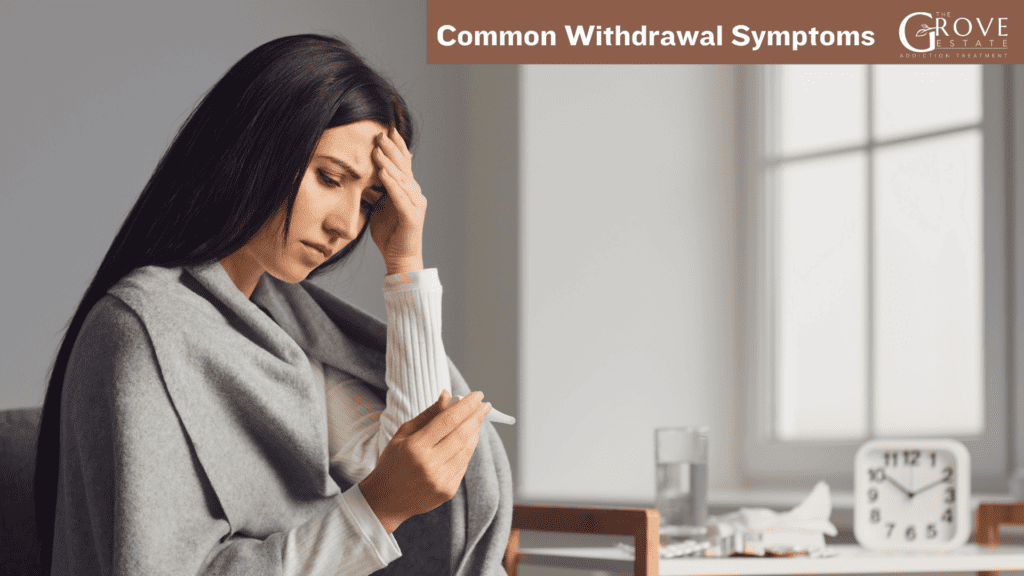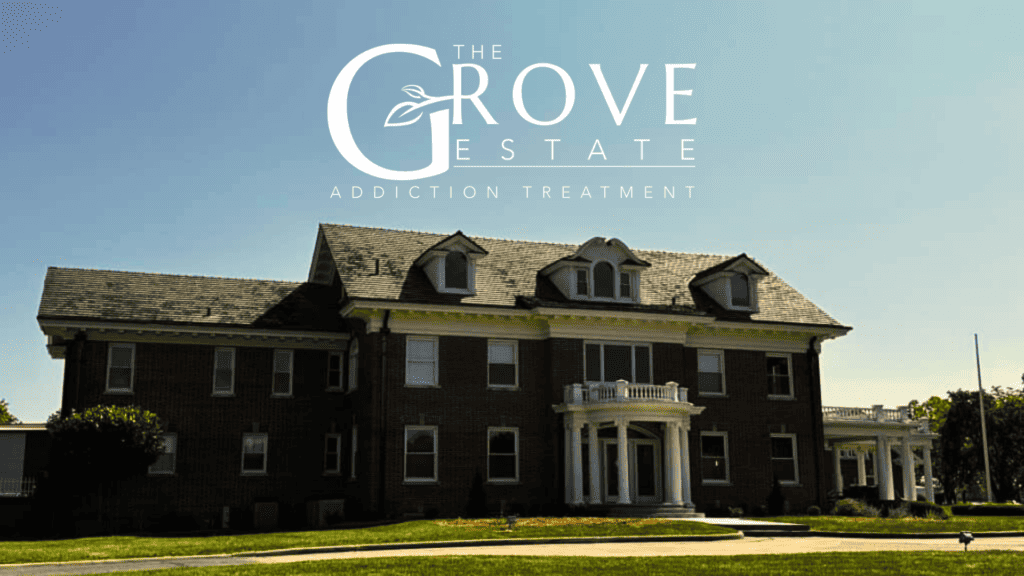Addiction is a pervasive issue that affects millions of individuals worldwide, leaving a trail of broken dreams, strained relationships, and lost potential. It’s not just a personal battle; it’s a societal concern that demands attention, understanding, and effective solutions.
One of the most critical steps in the journey to recovery is drug detoxification. Often misunderstood or underestimated, this process serves as the foundation for a successful and sustainable recovery.
What is Drug and Alcohol Detoxification?
Detoxification, commonly referred to as ‘detox,’ is the process of allowing the body to rid itself of the toxins accumulated due to prolonged drug or alcohol use. It’s the body’s natural way of metabolizing and eliminating these substances, but when someone has been using for an extended period, the process can become overwhelming and, in some cases, dangerous.
What Are The Different Types Of Drug and Alcohol Detox For Addiction?
The 6 different types of detox programs are listed below:
- Medical Detox: A medical detox is a comprehensive approach to withdrawal management that is conducted under the supervision of medical professionals. This type of detox is suitable for individuals who have severe or long-term substance dependencies. Medical detox may involve the use of medications to alleviate withdrawal symptoms and ensure the safety and comfort of the individual.
- Social Detox: Social detox, also known as non-medical or social model detox, is typically provided in a non-medical setting. It is designed for individuals with mild to moderate substance dependencies who do not require medical intervention during withdrawal. Social detox focuses on providing emotional support, counseling, and a safe environment for individuals to detoxify.
- Holistic Detox: Holistic detox takes a holistic approach to detoxification, considering the physical, mental, and emotional aspects of addiction. It often incorporates alternative therapies such as acupuncture, yoga, meditation, and nutritional counseling to promote overall well-being during detox. Holistic detox aims to address addiction more comprehensively.
- Outpatient Detox: Outpatient detox programs allow individuals to detoxify while living at home or in a supportive environment. They are suitable for those with mild substance dependencies and strong social support systems. Outpatient detox typically involves regular check-ins with healthcare professionals and may use medications to manage symptoms.
- Rapid Detox: A rapid detox is a specialized form of detoxification that is designed to accelerate the withdrawal process. It involves administering medications under anesthesia to induce a rapid withdrawal. While this approach can shorten the duration of withdrawal, it may not be suitable for everyone and should only be conducted in a medical setting.
- Natural Detox: Some individuals choose to undergo detox without the use of medications. Natural detox focuses on cleansing the body through a diet rich in nutrients, exercise, and alternative therapies. While it may be appealing to those who prefer a drug-free approach, it may not be suitable for individuals with severe dependencies.
What are the Processes for Drug and Alcohol Detox?
The process of drug and alcohol detoxification typically involves several key stages, which are designed to safely manage withdrawal symptoms and pave the way for long-term treatment and recovery. Here’s an overview of the general steps involved:
- Assessment:
- Medical Evaluation: The detox process usually begins with a thorough medical assessment. This includes evaluating the individual’s physical and mental health, substance use history, and the presence of any co-occurring disorders.
- Substance Abuse Screening: Tests are often conducted to determine the types and amounts of substances in the body.
- Stabilization:
- Medical Supervision: During stabilization, medical professionals provide care and support to help the body adjust to the absence of the substance. This may include administering medications to ease withdrawal symptoms and prevent complications.
- Psychological Support: Counseling and support are provided to help manage anxiety, depression, or other mental health symptoms that can accompany detox.
- Medication Management (if applicable):
- Alcohol Detox: Medications like benzodiazepines may be used to reduce withdrawal symptoms like anxiety and seizures.
- Opioid Detox: Medications such as methadone, buprenorphine, or naltrexone can be used to alleviate withdrawal symptoms and cravings.
- Benzodiazepine Detox: A gradual tapering off of the benzodiazepine, sometimes using a longer-acting benzodiazepine to reduce withdrawal symptoms.
- Other Substances: Depending on the substance, other medications may be used to treat specific symptoms like nausea, hypertension, or insomnia.
- Supportive Care:
- Nutritional Support: Detox often includes nutritional support to address deficiencies and improve overall health.
- Hydration: Ensuring adequate hydration is important, especially if the individual experiences symptoms like vomiting or diarrhea.
- Counseling and Behavioral Therapy:
- Individual Therapy: Sessions with a counselor or therapist can help address underlying issues and prepare for long-term recovery.
- Group Therapy: Participation in group sessions can provide peer support and shared learning experiences.
- Planning for Continued Treatment:
- Aftercare Planning: Detox is just the first step in addiction treatment. Plans for ongoing therapy, support groups, and sometimes residential or outpatient treatment programs are made to continue recovery.
- Monitoring and Follow-Up:
- Regular Check-ins: After detox, regular follow-ups are important to monitor recovery progress and prevent relapse.
It’s important to note that detoxification should be done under professional supervision, as withdrawal can be dangerous and sometimes life-threatening. The specific process and medications used can vary based on the individual’s needs and the substances involved.
What is the difference between Medical Detox vs. Residential Rehab?
Medical detox and residential rehab are two distinct stages of addiction recovery. Medical detox is a short-term, medically supervised process for managing withdrawal symptoms, primarily focusing on physical stabilization. In contrast, residential rehab is a longer, immersive treatment program that addresses the psychological aspects of addiction, offering therapy and skills for long-term recovery.

Can I Detox During Pregnancy?
Detoxing from alcohol and drugs during pregnancy is a very delicate matter and should be approached with extreme caution. Pregnant women who are dependent on alcohol or drugs should not attempt to detox on their own due to the significant risks to both the mother and the developing fetus. It’s crucial to seek professional medical advice and support for the following reasons:
- Risks to the Fetus:
- Withdrawal: Sudden withdrawal from alcohol or drugs can be stressful for the fetus and may lead to complications such as preterm labor, fetal distress, or miscarriage.
- Substance Exposure: Continued use of alcohol or certain drugs during pregnancy can lead to developmental disorders, birth defects, and Neonatal Abstinence Syndrome (NAS) in the baby.
- Maternal Health Considerations:
- Detox can pose serious health risks to the mother, especially in the case of substances like alcohol and benzodiazepines, where withdrawal can be life-threatening without proper medical supervision.
- Pregnancy can alter how the body handles detoxification, potentially complicating the process.
- Need for Supervised Medical Detox:
- Detoxification during pregnancy should always be done under the supervision of healthcare professionals experienced in managing both addiction and pregnancy.
- Medically supervised detox can provide a safe environment for both the mother and the fetus, with monitoring and treatment of withdrawal symptoms and any complications.
- Comprehensive Care:
- Treatment should also address the nutritional and psychological needs of the pregnant woman, along with prenatal care for the fetus.
- Counseling and support services are often part of a comprehensive treatment plan.
- Aftercare:
- Post-detox, ongoing support, and treatment are essential to maintain sobriety and ensure the health of both mother and child.
Who Needs Medical Detox?
Medical detox is a critical first step in the addiction treatment process for individuals who are physically dependent on substances and likely to experience withdrawal symptoms. It is essential for those whose substance use poses significant health risks if stopped abruptly without medical supervision. Key indicators for the need for medical detox as referenced in the DSM5 are listed below::
- Physical Dependence on Substances: Individuals who have developed a physical dependence on alcohol, opioids, benzodiazepines, or other substances often require medical detox. This dependency is characterized by the body’s reliance on the substance to function normally.
- Risk of Severe Withdrawal Symptoms: Certain substances, particularly alcohol and benzodiazepines, can cause life-threatening withdrawal symptoms like seizures, delirium tremens (DTs), or severe dehydration. Medical detox provides a safe environment where these symptoms can be managed.
- History of Complicated Withdrawal: Individuals who have experienced severe or complicated withdrawal symptoms in the past are likely candidates for medical detox. This history indicates a higher risk of severe withdrawal symptoms in future attempts to quit.
- Co-occurring Medical and Mental Health Conditions: Those with existing medical conditions (like heart disease or diabetes) or mental health disorders (such as depression or anxiety) may require a medical detox to manage the complexities of withdrawal alongside their ongoing health issues.
- Long-Term or Heavy Substance Use: Individuals with a long history of heavy substance use often have more intense withdrawal symptoms, necessitating a medically supervised detox.
- Previous Relapses after Attempting to Quit: Those who have tried to quit independently but relapsed, particularly due to the inability to manage withdrawal symptoms, can benefit from the structured support of medical detox.

What Are The Challenges of Detox?
Detox is not a walk in the park, in fact, it’s often accompanied by intense cravings, physical discomfort, and emotional upheavals. Here’s what one can expect and how professional guidance can make a difference:
- Managing Withdrawal Symptoms: Symptoms can range from mild anxiety and mood swings to severe physical pain, hallucinations, and even seizures. A professional setting ensures these are managed and treated appropriately.
- Emotional Support: Beyond the physical challenges, detox can be an emotional rollercoaster. Having a supportive team can provide the necessary encouragement and understanding during this vulnerable phase.
- Setting the Stage for Recovery: A successful detox increases the chances of long-term recovery. With the right support, individuals can transition smoothly to the next phases of treatment, armed with the confidence that they’ve already overcome one of the most challenging parts of their recovery journey.
What Is The Role of Medication in Detoxification?
Medication can play a pivotal role in the detox process, especially for substances with severe withdrawal symptoms. Here’s how medication-assisted treatment (MAT) can aid in detox:
- Easing Symptoms: Certain medications can mimic the effects of addictive drugs, reducing cravings and withdrawal symptoms. Over time, the dosage can be reduced until the individual is no longer dependent.
- Safety: For substances like alcohol or benzodiazepines, withdrawal can be life-threatening. Medications can stabilize the patient, preventing seizures or other severe symptoms.
- Improving Treatment Outcomes: When combined with counseling and other therapies, MAT can increase the likelihood of treatment success.
What Happens After Detox?
Detoxification is just the beginning. True recovery requires addressing the underlying causes of addiction and learning strategies to prevent relapse. Here’s what lies beyond detox:
- Holistic Therapy and Counseling: These holistic therapy sessions delve into the root causes of addiction, helping individuals understand their triggers and develop coping mechanisms.
- Support Groups: Sharing experiences with others can provide invaluable support and insights. Groups like AA or NA offer a community of individuals who understand the challenges of recovery.
- Aftercare: This includes ongoing therapy, support groups, and sometimes sober living environments to help individuals transition back into daily life without substances.
Can I Detox from Home?
Detoxing from drugs and alcohol at home is a complex decision that depends on various factors, including the substance(s) involved, the severity of the addiction, the individual’s overall health, and the presence of support systems. While some people can detox at home, especially in cases of mild addiction, there are significant risks and considerations to be aware of:
Considerations for At-Home Detox
- Substance and Severity of Dependence:
- Certain substances, particularly alcohol and benzodiazepines, can cause severe and potentially life-threatening withdrawal symptoms. Home detox in these cases is generally not recommended.
- For less severe cases of addiction, particularly with substances that don’t typically result in dangerous withdrawal symptoms (like some stimulants or cannabis), home detox might be more feasible.
- Health Risks and Complications:
- Withdrawal from substances like alcohol and benzodiazepines can lead to severe symptoms like seizures, hallucinations, and delirium tremens (DTs), which require immediate medical attention.
- Individuals with pre-existing health conditions or a history of severe withdrawal should seek professional medical supervision.
- Support System:
- A strong support system is crucial for a successful home detox. This includes family or friends who can provide emotional support and assist in case of emergencies.
- Access to Medical Care:
- It’s essential to have quick access to medical care if complications arise during the detox process.
- Mental Health Considerations:
- Withdrawal can exacerbate mental health conditions like depression or anxiety, making professional support critical.

Medical Detox: The First Step in Recovery
Medical detox is the initial phase in the journey to sobriety. It usually lasts from a few days to a couple of weeks, depending on the substance and severity of the addiction. The primary goal of medical detox is to safely manage withdrawal symptoms that occur when an individual stops using drugs or alcohol. This process is conducted under medical supervision to ensure the patient’s safety, often involving medication-assisted treatment to alleviate discomfort. Unlike residential rehab, medical detox does not involve intensive therapy sessions but focuses on preparing the individual for the next step in recovery.
Residential Rehab: Building a Foundation for Long-term Recovery
Following medical detox, residential rehab provides an in-depth approach to treating addiction. This phase, typically lasting from 28 days to several months, offers a structured and therapeutic environment. Patients engage in individual and group therapy sessions, developing coping strategies and delving into the psychological underpinnings of their addiction. This inpatient rehab setting contrasts with medical detox by providing continuous emotional and psychological support, crucial for addressing deep-rooted issues related to substance abuse. The focus extends beyond physical health, emphasizing behavioral change and relapse prevention.
Where to Get Detox From Drug and Alcohol Addiction?
Medical Detox for drug and alcohol addiction is available at rehab centers throughout the country.
Over 932,000 people have died since 1999 from a drug overdose according to the 2022 Drug Overdose: Death Rate Maps & Graphs published by the CDC and the fastest way to get off drugs is by attending a substance use disorder detox program.
At The Grove, we understand the challenges and fears associated with detox. But we also witness the incredible transformations that occur when individuals take that brave first step. Our dedicated team is here to guide, support, and empower you every step of the way, our detox program in Indiana is not just about removing toxins but about laying the foundation for a brighter, substance-free future.
Take the First Step Today
Your journey to a healthier, happier life begins with the decision to seek help. At The Grove, we’re committed to providing a safe, nurturing environment for your detox and recovery journey. Don’t let addiction define you. Reach out to us today and embrace the path to a brighter future.
Share This Post



